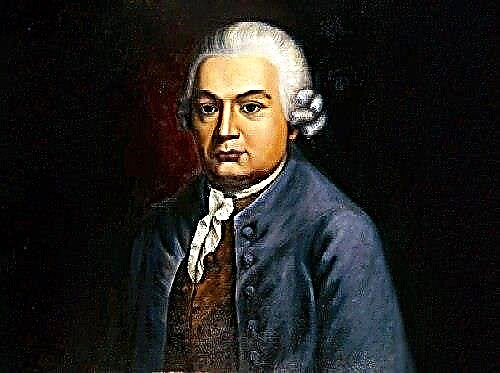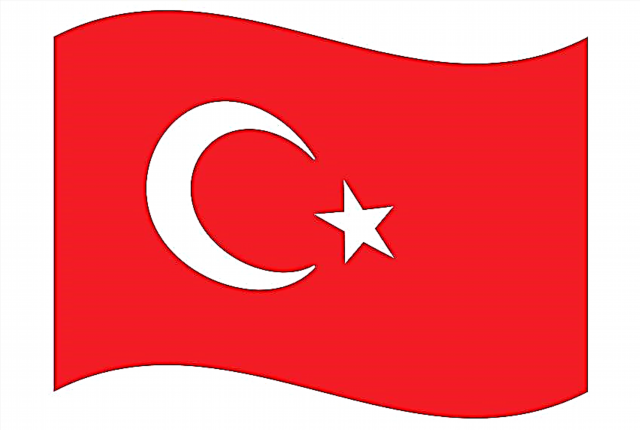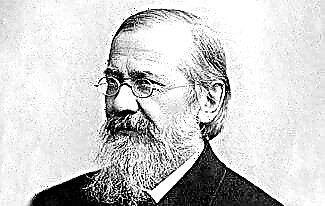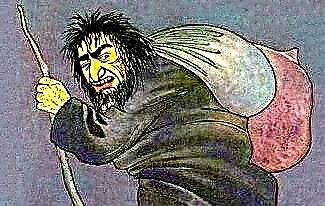Football is the most popular game in the world. Over a century and a half of its existence, this game has turned into a powerful pyramid, consisting of hundreds of millions of people. The base of this imaginary pyramid is made up of amateurs, from kids kicking a ball on a vacant piece of land to respectable men playing soccer a couple of times a week in the evenings. At the top of the football pyramid are the professionals with their multi-million dollar contracts and lifestyle that matches those contracts.
The football pyramid has many intermediate levels, without which it is inconceivable. One of them is the fans, who sometimes write their pages in the history of football. The functionaries also play a role in football, coming up with new and clarifying old rules. Sometimes outsiders also contribute to the development of football. So, engineer John Alexander Brody, who was dragged to football by friends, was surprised by the disputes about whether the ball hit the goal or not. "Why not hang up the net?" he thought, and ever since then even the standard of soccer netting - 25,000 knots - is called Brody.
And in the history of football there are still many funny, touching, instructive and even tragic facts.
1. In November 2007, Inter Milan arrived in the English city of Sheffield with Marco Materazzi and Mario Balotelli in the lineup. For the height of the European football season, the case is rather trivial, only the Italian club came to Foggy Albion not at all to take part in the Champions League match or the then UEFA Cup. Inter came to a friendly match in honor of the 150th anniversary of the oldest football club in the world - Sheffield FC. The club was founded in 1857 and has never become the champion of England. However, at the grand match. ended with a score of 2: 5, attended by the king of football Pele and many of the stars of this game of lower rank.

2. Football goalkeepers did not immediately get the right to play with their hands. In the first football rules, there was no mention of goalkeepers at all. In 1870, goalkeepers were singled out in a separate role and allowed to touch the ball with their hands within the goal area. And only in 1912, a new edition of the rules allowed goalkeepers to play with their hands throughout the penalty area.
3. In its first ever official match, the Russian football team met in the 1912 Olympics with the Finnish national team. Finland was then part of the Russian Empire, but the colonial regime in it was extremely liberal, and the Finns easily got the right to compete at the Olympic Games under their own flag. The Russian national team lost with the score 1: 2. The decisive goal was scored, according to the materials of the press at that time, by the wind - he “blew out” the ball that was flying past them. Unfortunately, the notorious “Olympic system” was not applied at that time, and the Russian team did not go home after the starting defeat. In the second match, the Russian footballers met with the German team and lost with a crushing score of 0:16.
4. On April 28, 1923, at the brand new Wembley Stadium in London, the FA Cup final match (the official name of the FA Cup) between Bolton and West Ham took place. A year ago, just over 50,000 spectators came to Stamford Bridge for a similar match. The organizers of the 1923 finals feared that the 120,000th Wembley would not be full. The fears were in vain. More than 126,000 tickets were sold. An unknown number of fans - several thousand - broke into the stadium without tickets. We must pay tribute to the London police - the "bobbies" did not try to act harshly, but only directed the streams of people. When the stands were full, the police began to let spectators onto the running tracks and outside the gates. Of course, crowds of spectators around the perimeter of the football field did not contribute to the comfort of the players. But on the other side. in half a century, inaction or wrong actions of law enforcement officers will lead to several large-scale tragedies with dozens of victims. The final of the 1923 Football Association Cup ended without injuries, except for those of West Ham players. Bolton won the match 2-0 and both goals were co-sponsored by the audience. In the case of the first goal, they did not let the defender, who had just thrown in, into the field, and in the episode with the second goal, the ball flew into the goal from a fan who was standing close to the post.
5. Until 1875 there was no crossbar at the football goal - its role was played by a rope stretched between the bars. It seems to have put an end to the debate about whether the ball flew under the rope, throwing it, or over the rope, bending it down. But it was the presence of a solid crossbar that caused fierce controversy almost a century later. In the final match of the 1966 World Cup England - Germany, with the score 2: 2, the ball bounced down from the crossbar after hitting the English striker Jeff Hirst. The line referee from the USSR Tofik Bahramov signaled to the chief referee Gottfried Dienst that the ball crossed the goal line. Dienst scored a goal, and the British, who subsequently scored another goal, celebrated their only victory in the world football championships so far. However, disputes about the legality of the decision of the German arbitrator do not subside until now. The surviving videos do not help to give an unambiguous answer, although, most likely, there was no goal in that episode. Nevertheless, the crossbar helped the British to win the championship title.
6. The main merit of the outstanding German coach Sepp Gerberger is often called the victory of the German national team at the 1954 World Cup. However, the title overshadows Gerberger's innovative approach to his work. He constantly traveled to other cities and countries to look at future rivals - before Gerberger, none of the coaches did this. Also, as part of the preparation of the national team for a match or tournament, the coach traveled to the competition sites in advance and inspected not only the stadiums where the games were held, but also the hotels where the German national team will live, and the restaurants where the players will eat. In the middle of the twentieth century, this approach was revolutionary and gave Gerberger an edge over his colleagues.

7. Not only fashion is subject to cyclicality, but also football tactics. now leading clubs and national teams are lining up their defensive players, provoking opposing players into an offside position. This is how defensive formations looked from the introduction of football to the 1930s. And then the Austrian coach, who worked in Switzerland for many years, Karl Rappan invented a technique that was later called "Rappan's Castle". The essence of the technique was simple, like everything great. The pioneering coach placed one of the defenders closer to his goal. Thus, the team had a kind of second echelon of defense - the rear defender cleaned up the flaws of the command defense. They began to call him "the cleaner" or "libero". Moreover. such a defender could also become a valuable attacking resource, connecting to the attacks of his team. The “cleaner” scheme, of course, was not ideal, but it worked properly in world football for more than half a century.
8. It's hard to believe now, but in our football there were times when the national team coach was fired for taking second place at the European Championship. After winning the first such tournament in 1960, the USSR national team was expected to repeat its success 4 years later. The national team performed successfully, but in the final they lost to the Spanish team with a score of 1: 2. For this “failure” coach Konstantin Beskov was fired. There were, however, rumors that Konstantin Ivanovich was fired not for the second place, but for the fact that in the final the Soviet Union national team lost to the team of “Francoist” Spain.
9. The modern Champions League is not at all the original invention of the European Union of Football Associations (UEFA). Back in 1927, in Venice, football functionaries from different countries agreed to hold a tournament with the not very euphonious name of the Cup of the Mitropa (abbreviated from Mittel Europa - “Central Europe”). The cup was played by the strongest clubs of the participating countries, which were not necessarily their champions. With the advent of UEFA tournaments, interest in the Mitropa Cup has steadily declined, and in 1992 its last draw took place. However, among the last owners of this sunk into oblivion of the cup are such clubs as the Italian “Udinese”, “Bari” and “Pisa”.
10. One of the most titled trainers in the world, the Frenchman Helenio Herrera had, to put it mildly, a peculiar character. for example, his dressing room match preparation ritual involved the players swearing to fulfill all of his instructions. Given that Herrera has coached clubs from the heavily catholic Spain and Italy, oath motivation looks very dubious. On the other hand, in terms of the profession, Herrera was practically flawless. The clubs he runs have won seven national titles, three national cups, and a complete collection of international cups, including the Intercontinental. And Herrera became the first coach to collect a player at the base on the eve of important games.
11. The Austrian coach Max Merkel was nicknamed the “trainer” by football players and journalists. This one word very accurately characterizes the methods of work of a specialist. However, it is difficult to expect extreme gentleness from a coach who grew up in Nazi Germany and played for the Luftwaffe national team. Sometimes Merkel was successful. With “Munich” and “Nuremberg” he won the German Bundesliga, with “Atletico Madrid” became the champion of Spain. However, due to the draconian training methods and the language constantly ahead of thought, he did not stay anywhere for long. No wonder who likes to collaborate with the SS with someone who says Spain would be a wonderful country if it weren't for so many Spaniards. And about one of the German cities, Merkel said that the best. what is in it is the highway to Munich.
12. Joe Fagan became the first coach in England to win three trophies in one season. In 1984, Liverpool headed by him won the League Cup, became the winner of the national championship and won the Champions Cup. On May 29, 1985, before the start of the final match of the Champions Cup against the Italian “Juventus”, held in the Belgian capital Brussels, Fagan thanked the players for their work and announced his retirement. However, the players of “Liverpool” were unable to present him with a farewell gift in the form of the second Champions Cup in two seasons. And the coach would hardly have been happy about the victory. An hour before the start of the match, English fans staged a bloody massacre at the Heysel Stadium, in which 39 people died and hundreds were injured. Juventus won arguably the most meaningless final in European club history 1-0. And Fagan's farewell match became a farewell match for all English clubs - after the Brussels tragedy, they were disqualified for five years, which dealt a powerful blow to English football.

13. In November 1945, a historic tour of the Moscow “Dynamo” in Great Britain took place. Despite the general benevolence towards the Soviet people, in the field of football, the British still considered themselves celestials and did not expect strong resistance from incomprehensible Russians. The USSR national team did not take part in the world championships, European club tournaments did not exist yet, and Soviet clubs played friendly matches only against colleagues from ideologically close countries. Therefore, the Dynamo tour has become a kind of window to Europe. On the whole, it was successful. “Dynamo”, reinforced by the army team Vsevolod Bobrov and Konstantin Beskov, won two matches and drew two. The most impressive was the victory over London “Arsenal” with a score of 4: 3. The match took place in a heavy fog. The British have also strengthened their squad with players from other teams. Bobrov opened the score, but then the British seized the initiative and led to the break 3: 2. In the second half, “Dynamo” leveled the score, and then took the lead. Beskov applied an original technique - while in possession of the ball, he jerked to the side, leaving the ball motionless. The defender jerked after the Soviet forward, freeing the trajectory for the strike. Bobrov implemented the idea and brought Dynamo forward. The climax of the match came about five minutes before the final whistle. Vadim Sinyavsky, who was commenting on the match for Soviet radio listeners, recalled that the fog became so thick that, even when he went out with a microphone to the edge of the field, he could only see the players closest to him. When near the gates of “Dynamo” there was some kind of turmoil, even from the reaction of the stands it was not clear what happened - either a goal, or Aleksey Khomich, who was shining then, parried the blow. Sinyavsky had to hide the microphone and find out from Mikhail Semichastny, who was in sight, what had happened. The latter shouted: "Homa took it!" And Sinyavsky broadcast a long tirade about how Aleksey Khomich pulled the ball out of the upper right corner in an incredible throw. After the match, it turned out that Sinyavsky said everything correctly - Khomich really hit the ball flying into the right “nine”, and received an ovation from the English fans.
14. The football match, due to the broadcast of which Ivan Sergeevich Gruzdev almost fell under the firing squad in the popular television series “The Meeting Place Cannot Be Changed,” took place on July 22, 1945. In the film, as you know, one of the witnesses recalls that he saw Gruzdev, whose role is played by Sergei Yursky, at the moment when Matvey Blanter's football march is playing on the radio - the broadcasts of matches began and ended with him. Forensic scientist Grisha “six by nine” immediately suggests that “Dynamo” and CDKA played, and “ours” (“Dynamo” was the club of the Ministry of Internal Affairs) won 3: 1. Lev Perfilov's colorful character even mentions that there should have been a fourth goal, but “… a clean penalty…”, apparently, was not assigned. The scriptwriters of the film, the Weiner brothers, most likely relied on their own memory in describing the episode, but made a couple of quite excusable (more than 30 years had passed by the time the film was filmed) inaccuracies. The meeting place begins in August 1945 - the match took place at least a week before the murder of Larisa Gruzdeva. And the game ended with the score 4: 1 in favor of “Dynamo”. There was also a penalty kick at the Dynamo goal, and he was beaten twice - Dynamo goalkeeper Alexey Khomich first hit the ball, but moved from the goal line before hitting, and then Vladimir Demin still converted the 11-meter.
15. 199,000 spectators came to the Maracanã stadium in Rio de Janeiro on 16 July 1950. The match of the last round of the final round of the FIFA World Cup between the teams of Brazil and Uruguay was like a matchmaking between the groom and the bride, who is seven months pregnant - everyone knows the result in advance, but propriety obliges to hold a ceremony. The Brazilians at the home World Cup playfully dealt with all rivals. Only a very strong national team of Switzerland was lucky - its match with Brazil ended with a score of 2: 2. The Brazilians finished the rest of the games with an advantage of at least two goals. The final with Uruguay looked like a formality, and even according to Brazilian regulations, it was enough to play a draw. In the first half, the teams failed to open an account. Two minutes after the resumption of play, Friasa brought the Brazilians forward, and the corresponding carnival began at the stadium and across the country. The Uruguayans, to their credit, did not give up. In the middle of the second half, Juan Alberto Schiaffino equalized the score, completely demoralizing the Brazilian national team. And in the 79th minute, the man, about the pronunciation of whose name there is still controversy, sent Brazil to mourning.Alcides Edgardo Gidzha (the more familiar transcription of his surname “Chiggia”) went to the gate on the right flank and sent the ball into the net from an acute angle. Uruguay won 2: 1, and now July 16 is celebrated in the country as a national holiday. The grief of the Brazilians was immeasurable. Modern fans are used to sensations and incredible comebacks, but it should be borne in mind that in the middle of the twentieth century there were an order of magnitude fewer football matches, and important games could be counted on the fingers of one hand every year. And then the lost home final of the World Cup ...









